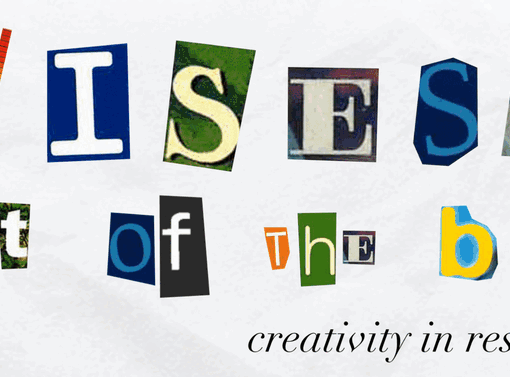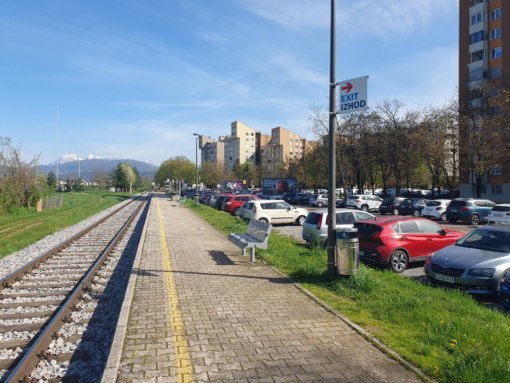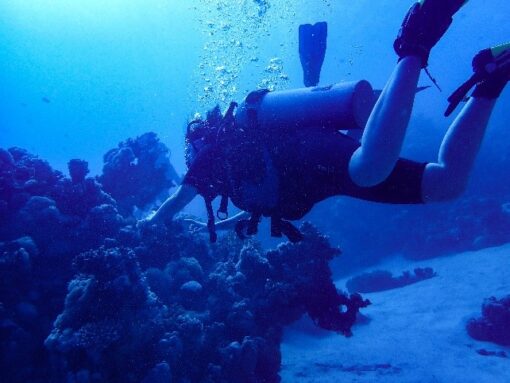Early Career Scientists Gwenaël, Laurane, Paula and Tadeja from the Vienna International School of Earth and Space Sciences (VISESS) have started an exciting interdisciplinary research project: they have developed a new way of communicating on climate change. At a Big Picture Event on Tuesday, 18 April 2023, they will present the PLEES index to the interested public and discuss how to communicate effectively on climate change with invited experts and the audience. We asked them to give us a few insights into their project and the planned event.
How did the PLEES project start?
The PLEES index was first envisioned by PhD student Laurane Fréour. She presented her idea during one of the interdisciplinary Big Picture Seminars at VISESS. Other PhD students sharing Laurane’s concern about climate change were then excited to join the project and the PLEES team grew to the current four members from VISESS’ Cosmos and Earth branches. In addition to our PhD research, we set out to construct the PLEES index and raise public awareness on climate change.
What were your individual motivations?
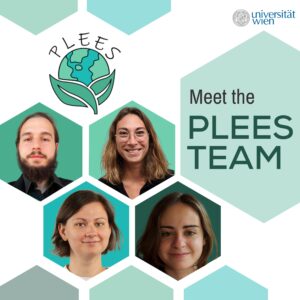 Gwenaël Van Looveren (Cosmos): I am a PhD student in Astrophysics studying atmospheres. A big part of my research focuses on the habitability of exoworlds, which is a constant reminder of how fragile and precious our world is. Through the PLEES project I hope to share how fast our world can change.
Gwenaël Van Looveren (Cosmos): I am a PhD student in Astrophysics studying atmospheres. A big part of my research focuses on the habitability of exoworlds, which is a constant reminder of how fragile and precious our world is. Through the PLEES project I hope to share how fast our world can change.
Laurane Fréour (Cosmos): I am a PhD student in Astrophysics, night sky and nature lover. Very concerned by the climate and social crisis, developing the PLEES project helped me to deal with my eco-anxiety and offer an interdisciplinary way to communicate climate change.
Paula Granero (Earth): As a Geologist PhD student, my research is focused on different palaeoclimatic and palaeoceanographic events that happened more than 70 million years ago. I wanted to participate in the PLEES project because I am concerned not just about the past and present but also the future.
Tadeja Veršič (Cosmos): I am a PhD student in Astrophysics and by nature a very curious and passionate person. I got involved in the PLEES project because I am concerned about our future and wanted to contribute to making the world a bit better.
What is the PLEES project about?
Motivated by the urgency of the situation and convinced that changes can happen very fast, we have developed a climate communication project called the PLEES index. This index, based on Maslow’s hierarchy of needs, quantifies the psychological, social, and economic impact of climate change in the world. It is a visual tool, easily distributable on social media, aiming to inform people about climate change, and especially directed to wealthier countries, with financial and political means to generate a positive change.
What role did looking at the „Big Picture“ play in your project?
One of the issues when communicating science is that the language used is not always immediately understandable. This is true also for climate change: for example, what does “an increase in the mean surface temperature of 2°” really mean? We aimed at developing an index that would capture a more tangible and human aspect of climate change by linking climate variables to people’s needs. Here we used Maslow’s hierarchy of needs, a model for understanding the motivations for human behaviour in psychology, to represent the worldwide psychological, social, and economic impacts of climate change.
How is it to manage this project as a PhD student in parallel to your own research?
As PhD students, we are always busy with work, meetings, deadlines, etc. However, our concern for climate change has always been present, and it has motivated us to continue researching how we can communicate effectively about climate change. Just as research is crucial for our academic future, we consider that climate change is also something we need to work on for the future development of our lives.
Where have you already shown your results?
After many group meetings and long hours of work on top of our PhDs, we were finally able to get some results to present at different conferences, always getting great feedback. So far, we presented the PLEES index at Semaine de l’Astrophysique Française” SF2A 2022 (Besançon, France), the Conference on interdisciplinary and transdisciplinary research for sustainable development 2022 (Louvain La Neuve, Belgium), which aimed to highlight some of the remarkable initiatives carried out in Circle U. universities, and A4E symposium 2022 (online).
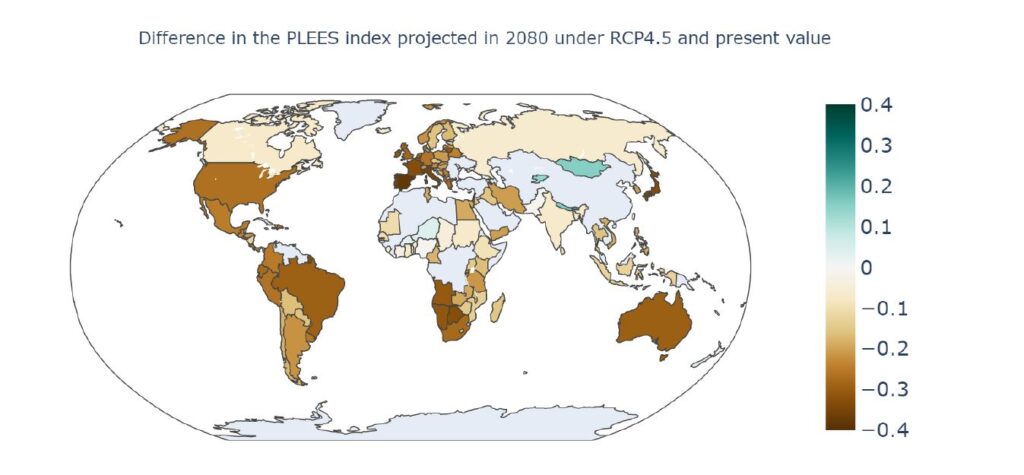
What will the Big Picture Event on 18 April 2023 be about?
On 18 April 2023 from 5pm to 7pm, we are organizing a free public event on climate change communication at UZAII. We will present the PLEES index and explore with invited the experts and the audience how climate change can be communicated effectively to trigger action. We have invited three panellists: climate scientist Aiko Voigt, environmental psychologist Nina Vaupotič, and the coordinator of the Climate Fresk Austria Benjamin Bertaux.
Why should one join this event?
“There is a rapidly closing window of opportunity to secure a liveable and sustainable future for all.” -IPCC report 2023. Are you worried about the impact of human-induced climate change on our future and the lack of global action to mitigate it? Perhaps you are tired of distant and vague doomsday scenarios? Would you like to explore ideas for effectively communicating climate change? Then come to our event! Here you can find more information and register: https://visess.univie.ac.at/activities/big-picture-talks-and-events/
Want to read more about Nature and Climate? Click here for interesting Rudolphina articles

